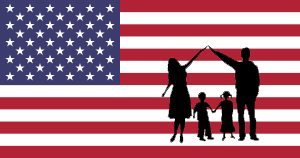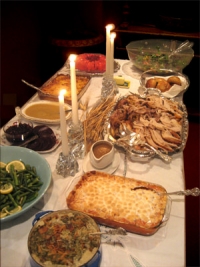Tag Archive for: fatherly advice

Guns Guns Guns
So, what do we tell our kids when someone with a gun goes crazy?
What do we tell our kids when someone with guns goes crazy? Do we say “Well, I’m sorry son, but in this country we have the right to bear arms, so that guy should have been…

Patriotic Parenting – Making America Great Again
Do it by raising great children. A “great” country needs great citizens… and building great citizens begins with focused and responsible parenting. Here are 5 ways that I believe patriotic parents can raise intelligent, inspired…

Post Inauguration Parenting – 8 Simple Tips
After saying farewell to President Obama, one of the best parenting examples I could have ever wanted, I, like many others am dealing with the inauguration of President Trump. I am optimistic that the enormous responsibility the…

Prescription For a Happy Thanksgiving
There’s been a lot of complaining going on recently… the unknown (election), the weather (extreme), the world (wars, immigration, Brexit).
It’s so bad even Kanye can’t handle it.
But tomorrow is Thanksgiving, and earlier today I decided…

The Homework Heretic
It’s back-to-school time and homework is in the news. Mrs. Brandy Young, a brilliant second-grade teacher in Godley, Texas sent a note home to parents explaining that her students would have no “formally assigned” homework this year.…

Tyrants, Toddlers, and Trump
I know a number of people who have toddlers that they describe as “difficult.”
These children have been complicated from the start. As tiny tyrants, they’ve spit out their food, pounded the table, or thrown tantrums unabated…

Our Son Says “We’re Pregnant!”
Our son Ben recently called and said “We’re pregnant!” JoAnn, my wife, was very quick to point out that Ben’s wife, Kelsie is pregnant and that they are having a baby. After all, JoAnn asks, “Is Ben nauseous all the time?” “Are…

Being a Team Player
I’ve been getting a lot of calls lately about Adam LaRoche. He’s the former Chicago White Sox player who retired last week after being asked to limit the amount of time his 14-year-old son, Drake, was spending with the team.
There wasn’t…

Self-Respect – A Key Parenting Ingredient
Teaching our children respect for others starts with teaching them respect for us, and this can be done without sacrificing our children's individuality or personal development. First, we have to believe in the importance of our role as parents,…

Three Important Parenting Questions
As JoAnn and I began navigating the parenting waters, we found that, in the process of defining our values, we were also determining some basic rules for running the family ship "our way." These were our first three basic questions:
Is…
